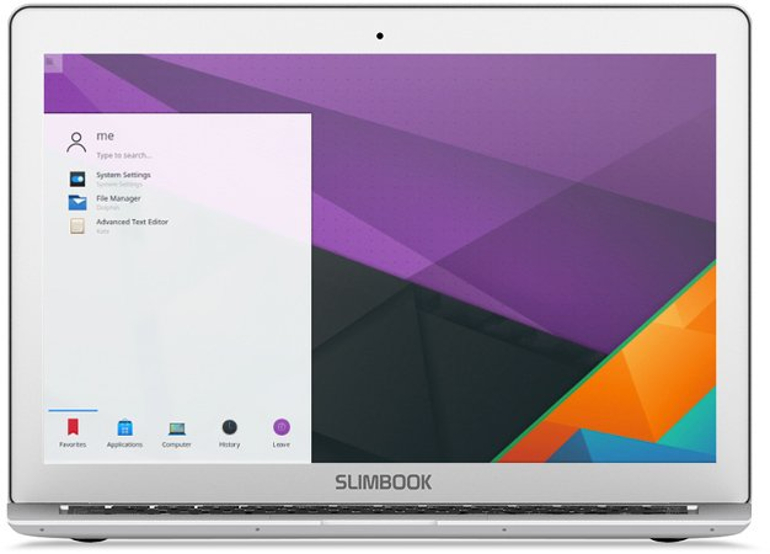Need a Linux-tuned laptop? New KDE Slimbook aims to make it simpler to drop Windows


The new KDE-branded Slimbook aspires to offer hardware that runs smoothly out of the box with Ubuntu-based KDE neon.
KDE community developers and Spanish brand Slimbook have teamed up to launch the 13.3-inch display KDE Slimbook, running the Ubuntu-based KDE neon operating system.
The new KDE-branded Slimbook aspires to give KDE fans hardware that runs smoothly out of the box with its software, which doesn't always happen after replacing a Windows desktop with a Linux distribution. KDE hopes the hardware will open up its software to new users outside its community of developers.
See also: The 10 best Windows laptops
The KDE Slimbook is available with a 2.3GHz Intel i5 processor, which starts at €729 ($779), while the 2.5GHz i7 variant starts at €849 ($907). The Slimbook's specs aren't cutting edge, but for some KDE fans, the key selling point may be that the hardware has been tested by KDE developers to ensure everything works.
The notebook is available in a silver aluminum body, and features a backlit keyboard, 4GB RAM and 120GB SSD storage. It has two USB 3.0 ports, mini HDMI port, an SD and MMC card reader, and a 6,800mAh battery, while display is full HD at 1,920 x 1,080 pixels.
Both variants can be upgraded with 8GB or 16GB RAM, and either a 250GB or 500GB SSD. The keyboard is available in Spanish, English, French and German. Pre-orders are open now but they won't be fulfilled until after March 15.
KDE contributor Thomas Pfeiffer explains that the Slimbook is the latest effort by KDE developers to ensure the open-source software just works.
KDE users can run into any number of problems when using, for example, KDE's Plasma environment or its other software, which can usually be traced back to compatibility issues at the software, operating system, or hardware and driver layers.
"Oftentimes it is difficult for us to pinpoint exactly where things are going wrong," he notes.
To address the OS layer, the KDE community started working with the developers of KDE neon, which is built on Ubuntu LTS 16.04. As neon developers explain, neon is not a KDE distribution as such, but a KDE project that contains the latest KDE software on the Ubuntu base.
"Last year, KDE neon joined the KDE community with the promise to give us control over the operating system layer. This does not mean we won't make our software available on other distributions or operating systems, of course, but it allows us to eliminate that layer as a possible source of a problem," Pfeiffer says.
The KDE-branded Slimbook is the culmination of the community's efforts to address the hardware layer, which "we had zero control over", he notes.
"Fast-forward to late last year, when the Spanish laptop retailer Slimbook approached KDE with the idea to offer KDE-branded laptops that come pre-installed with Plasma and KDE Applications. We were excited about the idea, and put our designers and developers to the task of creating a branding for such a device and making sure that KDE neon runs without any hardware-related issues on it."
For now, says Pfeiffer, the Slimbook is only available with KDE neon, but they're open to offering another distribution that comes pre-installed with Plasma.
Read more on Linux
- More Linux on my new notebook: Fedora, Linux Mint and Ubuntu
- Linux 2017: With great power comes great responsibility
- There's a Linux-powered car in your future
- Linux's 'big' 4.9 release adds support for Raspberry Pi Zero, LG Nexus 5
- Windows on Linux moves forward with new Wine 2.0 release
https://www.zdnet.com/article/canonical-partners-with-docker-for-cloud-container-management/